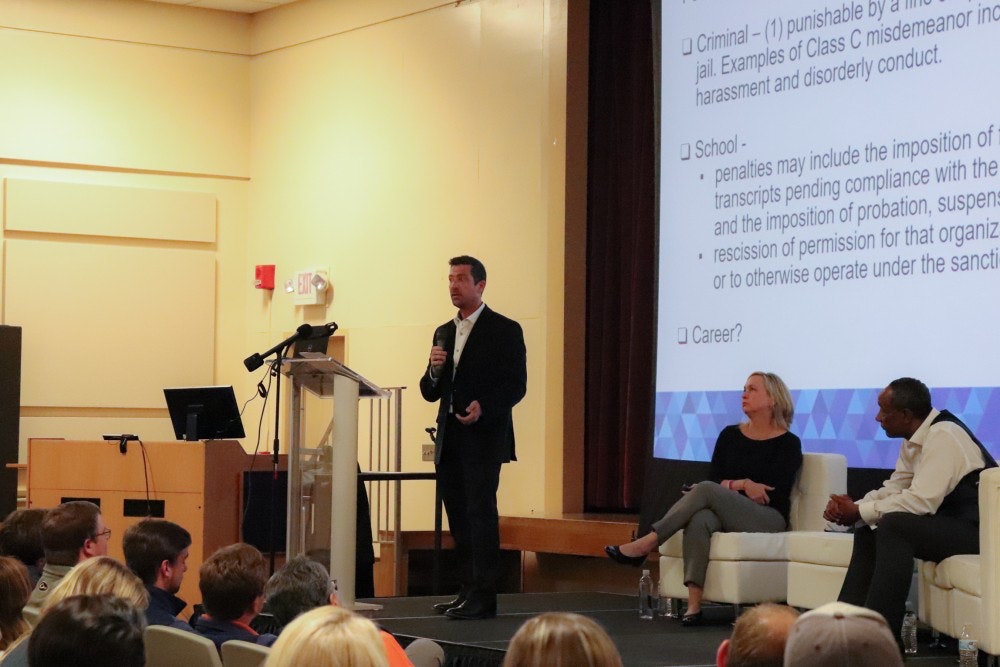The Office of Greek Life hosted the families of young men killed because of hazing at a presentation titled “Love, Mom and Dad” on Tuesday in Foy Hall.
Representatives from each fraternity and sorority were in attendance.
Rae Ann Gruver was anxious but filled with hope as her oldest son Max Gruver entered college. She began her presentation with a picture of her and her son on the day he was dropped off at LSU.
“This was the last time I felt his arms around me,” she said. “The last time I saw that huge smile, the last time I could look into his eyes, tell him that I love him and that I will miss him,” she said.
Less than one month later, her son died. A hazing event, called Bible Study, left him with a BAC of 0.495, six times the legal driving limit.
His fraternity brothers did not call the police or take him to the hospital. Instead, they decided to let him sleep it off on a couch, she said.
“Max choked to death on his own vomit,” Gruver said. “Our family has to live every single day without our oldest son. This is not the college experience we, or any of you, are looking for.”
Richard Braham experienced a similar situation in 2014. His son, Marquise, attended Pennsylvania State Altoona. Marquise committed suicide because of the guilt he felt for hazing.
“He couldn’t live with what was going on in the fraternity,” Braham said. “He would rather die than go back and do, and participate in, the things that were going on in that fraternity.”
Braham called for students to take a serious look at their actions. He emphasized the need for forgiveness and the ability to clear one’s conscience.
“I don’t want any of you to die of a guilty conscience,” Braham said. “If you haze somebody, go find that person and ask for their forgiveness. If they don’t forgive you, you just have to understand that, but you also should forgive yourself. Marquise couldn’t forgive himself, and he is dead because of that.”
Steve Gruver, Max’s father, highlighted actions states throughout the country are taking to prevent hazing in fraternities and sororities.
“We have a partnership with the North American Interfraternity Conference,” he said. “We formed a group called the Anti-Hazing Coalition and have created model legislations for the states that don’t have great hazing laws.”
Last April, the Louisiana State House passed the Max Gruver Act to create harsher penalties for hazing. Alabama has also passed legislation to impose penalties on Greek organizations that participate in hazing, including up to three months in county jail and fines up to $500.
“I want you all to be leaders and take action,” Rae Ann Gruver said. “It’s not always the easiest or most popular thing to do. It may save someone’s life. Speaking out will not be the easy choice, but it will be the right choice. Just because it happened to you doesn’t mean you should do it to the next group of pledges.”
At the close of the presentation, she ended with a passage from her son’s journal, a representation of her son’s character and the power his legacy can have for future college students.
“God works in funny ways,” the journal read. “He does bad things sometimes because in the end they are good… He does bad to ultimately create good.”
If you or someone you know has been or are being hazed, help is available. Call toll free 1-888-NOT-HAZE.






















